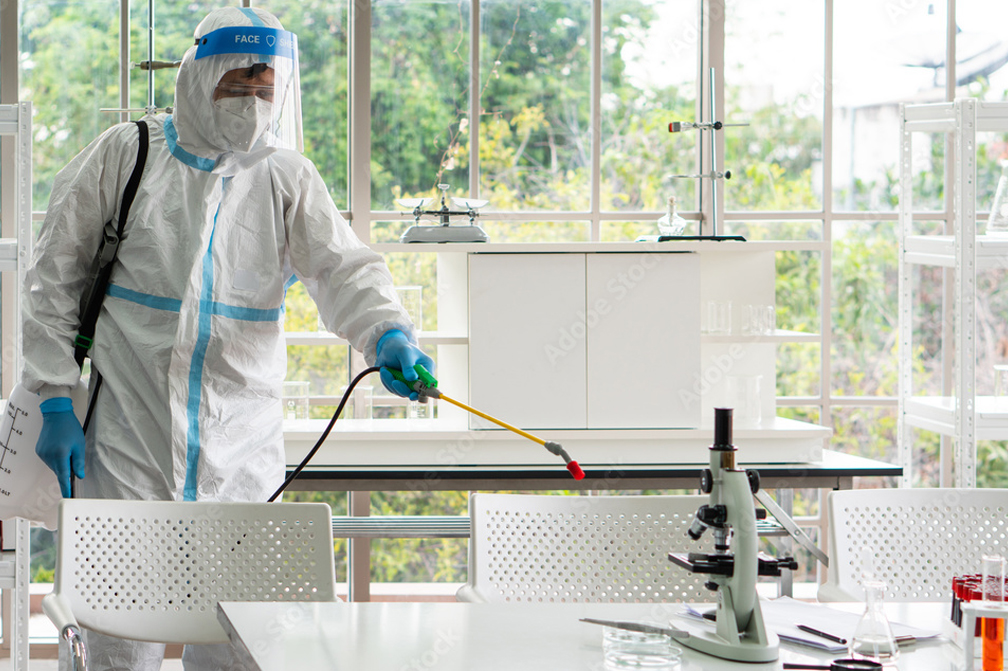As the world faces an unprecedented pandemic in modern times, many pest management companies are interested in providing services in their communities to assist with COVID-19. One of the primary suggestions from public health organizations, such as the Centers for Disease Control and Prevention and the World Health Organization, is to regularly disinfect surfaces that may be contaminated with SARS-COV-2 viral particles. While disinfection may seem like a simple concept, there are a myriad of details that must be addressed around the specifics of the service. This includes products and application equipment, regulatory requirements, staffing, training, customer service, quality assurance, and personal protection. The scope of this document is intended to provide a brief overview of the factors that pest control companies should consider if they plan to provide, or are already providing, disinfection services. This guidance is does not preempt local, state, and federal regulations and does not provide specific details regarding protocols or product selection. The intent of this document is to provide insight and perspective for companies considering disinfection and serve as a valuable resource to enable NPMA member companies to excel in disinfection services to protect public health. This document contains the best available information at time of publication, however the response and recommendations regarding the COVID-19 pandemic are rapidly evolving and recommendations may change frequently.

According to the Centers for Disease Control, disinfection is defined as the process of eliminating pathogenic microorganisms, except bacterial spores, on inanimate objects. Sterilization describes the process of eliminating all microbial life through various physical or chemical methods. Sanitizing lowers the number of germs on surfaces or objects to a safe level, as judged by public health standards or requirements. Finally, cleaning is the removal of visible soil from objects or surfaces. While the differences between these definitions may be subtle, it is important to understand the terminology when drafting documents and making marketing claims for disinfection services. In the United States, antimicrobial products are registered as pesticides with the Environmental Protection Agency. Many companies within the pest management industry have considered providing disinfection services as a logical next step to assisting with the pandemic, because they already have the knowledge and expertise to apply pesticides, the application equipment, and personal protective equipment and training. Therefore, The COVID-19 pandemic provided an opportunity for pest management companies to develop disinfection services to help protect the health and safety of their communities, as well as add a new service line to their businesses.
Many businesses and organizations are under great pressure during the current global health and economic crises. Crucial areas of healthcare and social care are at the front line of the battle against COVID-19 and businesses supplying a wide range of products and services are needed to keep these and all sectors of society running – not least the food supply system.
Many types of pest present in urban environments worldwide are vectors of diseases contaminate and consume food supplies and cause physical damage to buildings. WHO lists over 30 important pathogenic bacteria, viruses, protozoa and helminths that can be spread by just rodents and their ectoparasites.
In addition to rodents, other pests, including flies, cockroaches, birds, stored product insects, fleas and ticks are a health and economic threat. Buildings in all sectors, including hospitals, food processing plants, manufacturing plants, warehouses, education, hotels, restaurants, offices and residential accommodation provide ideal environments for many of these opportunistic pests.